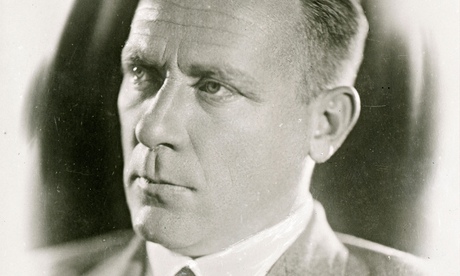The extraordinarily prolific EF Benson is chiefly remembered for his archly amusing Mapp and Lucia novels, but before them he turned his hand to horror stories, casting a chill upon the long Edwardian summer. I remember getting hold of a collection when I was about 13, luridly packaged under the title The Horror Horn; I was just old enough to snigger a little at the title (it refers actually to a Swiss mountain) and young enough to be disturbed by them.
Well, it turns out that I am still young enough to be disturbed by them. This collection, selected by that connoisseur of the eldritch, Mark Gatiss, contains enough nastiness to give you just the right kind of frisson for the time of year. Benson is often compared to his near-contemporary, MR James, who is considered the master of the genre. But HP Lovecraft spoke of the “singular power” of Benson’s stories, and called one of them, “The Face”, “lethally potent”. The evil things in Benson’s stories are more gruesome, and more palpable, than those in James – you can see the appeal for Lovecraft. James’s idea of the fear that walks in the night is something conjured up, sometimes almost literally, from the page: his terrors resemble byproducts of academic research. Benson’s monsters tend to be enormous slug-like creatures, grey and faintly luminous, acting as the terrible instruments of God’s wrath. As vehicles for giving readers the willies, they are most effective. When I reread “Caterpillars”, for the first time in four decades, I very quickly regretted that I had chosen to do so at night. Gatiss, in his introduction, says that it is “perhaps a ghost story like no other”, and he’s not wrong: it’s the kind of story that leaves one feeling almost unclean, checking clothes and body for vermin.
I wonder what it is that made the era so propitious for the production of this kind of story. (HG Wells and Arthur Conan Doyle were at it, too, among countless others.) One could propose a kind of morphic resonance, whereby Freud’s research into dreams a decade earlier had filtered through into an otherwise placid world; or you could suggest that it was the bad conscience of empire at work, undermining the pinnacles of its achievements as they were experienced at home: the church, the academy, the country house. James and Benson themselves remained, as they used to say coyly in the obituaries, unmarried, and maybe the sense of existing to some extent at a marginal level of society helped them conjure up tales of visitors from unseen worlds. I see Benson as trying to work something out from the unconscious: it’s not unusual for his stories to break the membrane between the waking and dreaming world, as in “Caterpillars”, or the recurring nightmare in “The Room in the Tower”.
But these tales wouldn’t survive if they hadn’t been constructed well, and one of the ways Benson achieves his effects is to tap into the natural world as deftly as he does the supernatural. The story “Spinach” is a comedy about spiritualism; and the power of “And No Bird Sings” resides in the way it undermines that happiness of summer. “It was one of those golden days which every now and again leak out of paradise and drip to earth,” he writes; all the more effectively to conjure up the monsters of hell.
• Ghost Stories is published by Vintage. To order a copy for £6.55 (RRP £7.99) go to bookshop.theguardian.com or call 0330 333 6846. Free UK p&p over £10, online orders only. Phone orders min p&p of £1.99.










